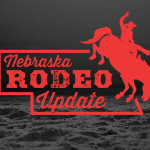Nebraska naturalists and hunters are accustomed to seeing an abundance of wild turkeys, but it has not always been the case.
Conservation programs since the early 20th century have brought wild turkey populations from a nationwide low of 30,000 to several million today.
John Kanter, senior biologist for the National Wildlife Federation, said the Recovering America’s Wildlife Act could fund similar successes in Nebraska. He stressed habitat preservation and restoration are crucial, and would be a huge focus of the legislation.
“Nebraska would be able to use those funds to restore riparian areas along the rivers, the wetlands systems that used to dot the edges of those areas and are so important to the birds that migrate through there, but also the wildlife that live there,” Kanter explained.
The bill would allocate $1.4 billion annually for states and tribes’ wildlife preservation efforts. It passed in the U.S. House in June, co-sponsored by Rep. Don Bacon, R-Neb., but it has been stuck in the Senate since then. Sen. Deb Fischer, R-Neb., is one of 42 sponsors of this bipartisan bill.
Turkey populations nationwide have declined again in the last decade. One Nebraska study showed a nearly 45% decrease since 2009.
Kanter pointed out one explanation is fewer nesting sites, which all birds contend with due to changes in land use.
“I think grassland restoration for prairie chickens, for sharp-tailed grouse, and for the many songbirds like Western meadowlarks that depend on these grassland habitats,” Kanter added.
The bill also includes funds to deal with invasive species, such as the Eastern red cedar, which is negatively affecting many of Nebraska’s grassland birds and upland game animals, harming apple trees and increasing wildfire risks.





